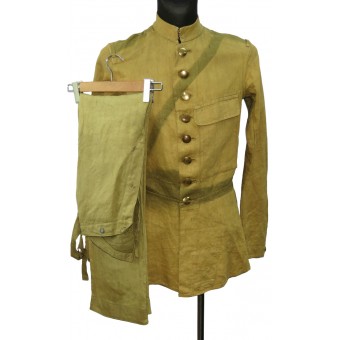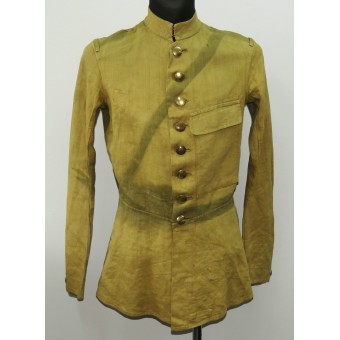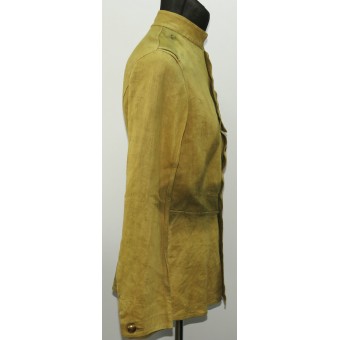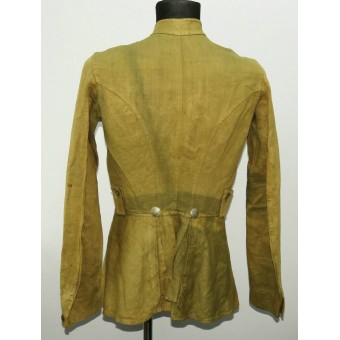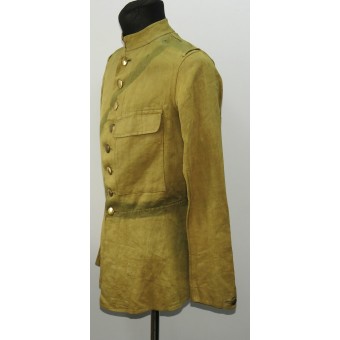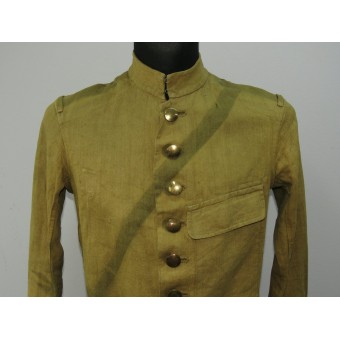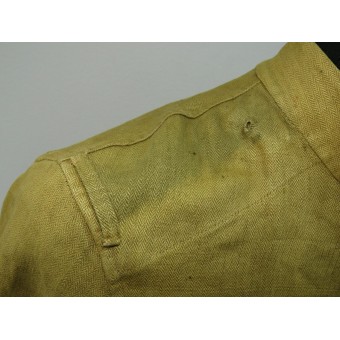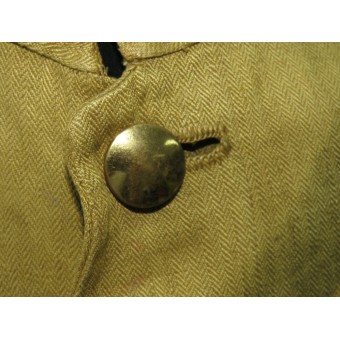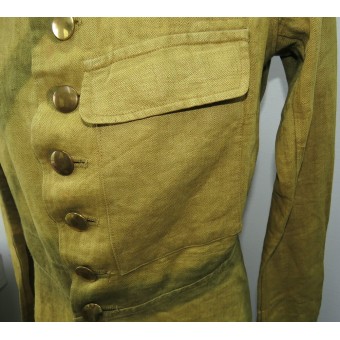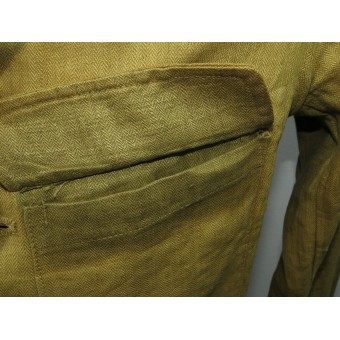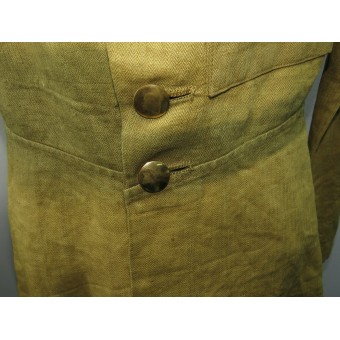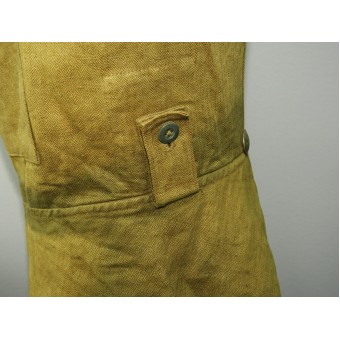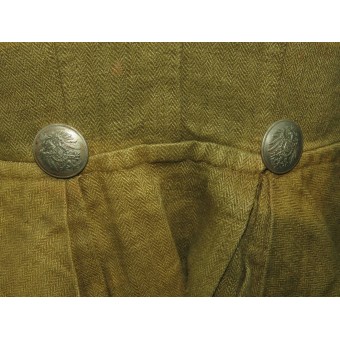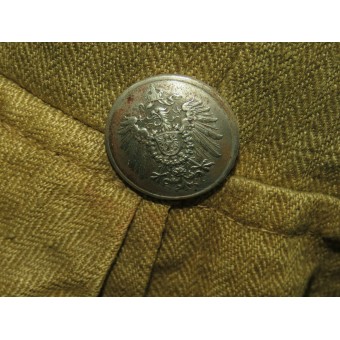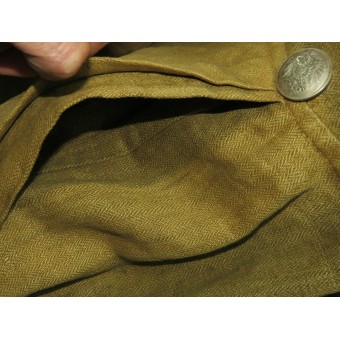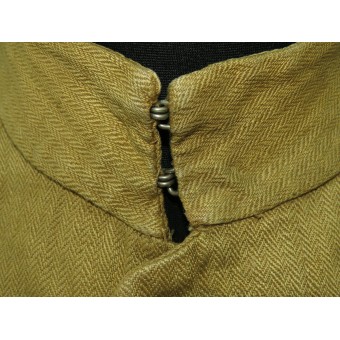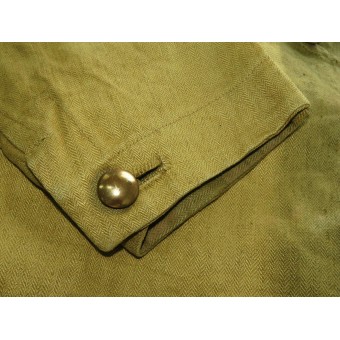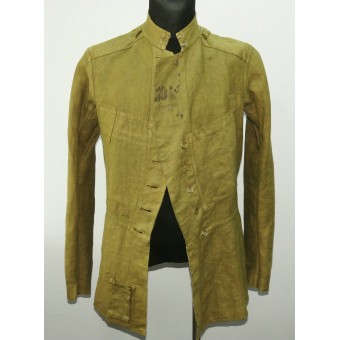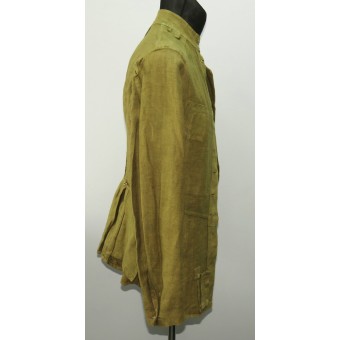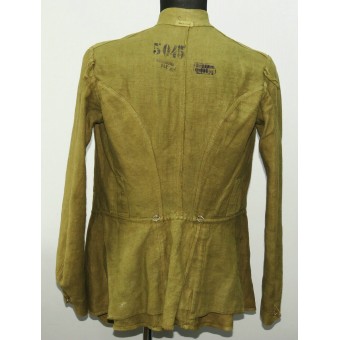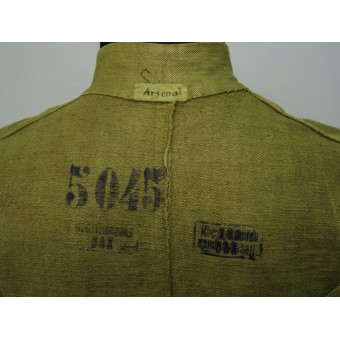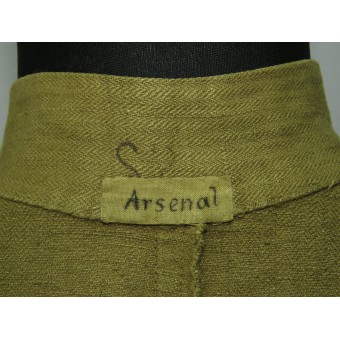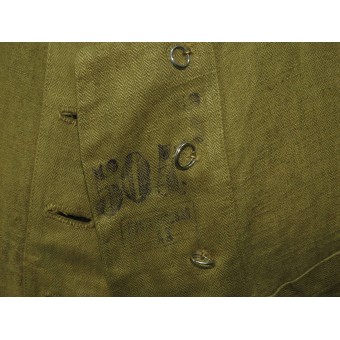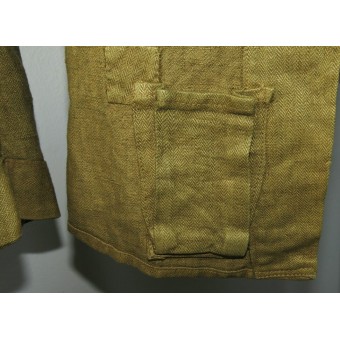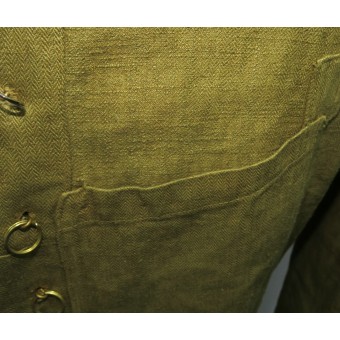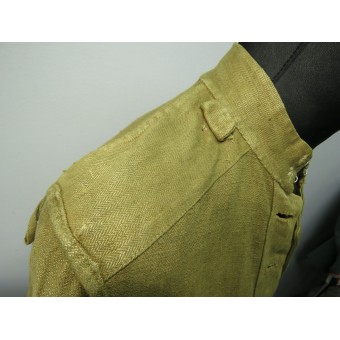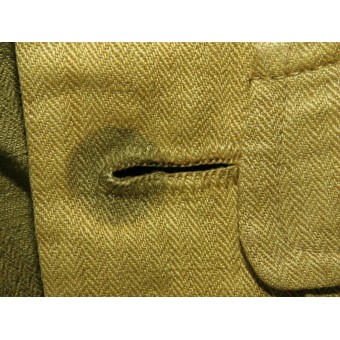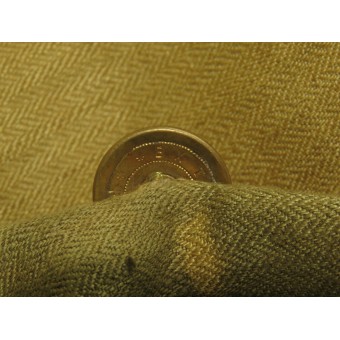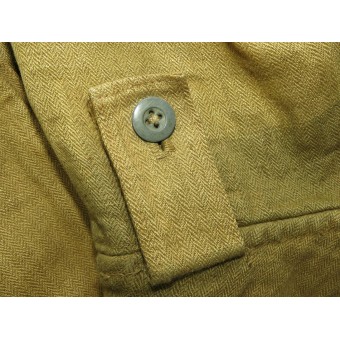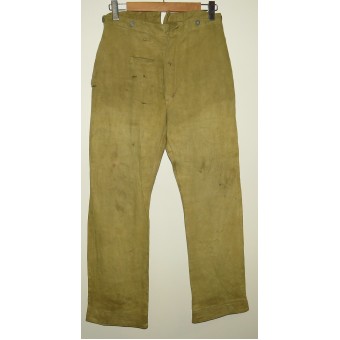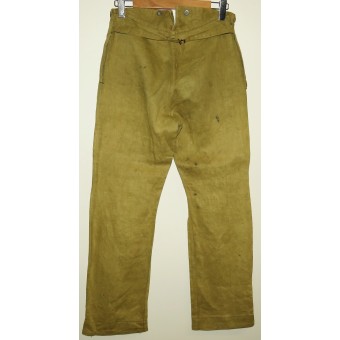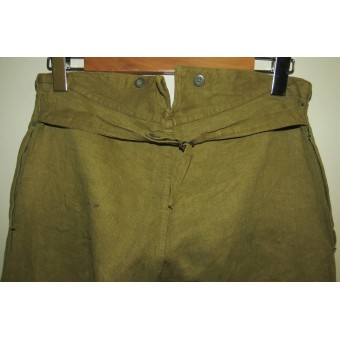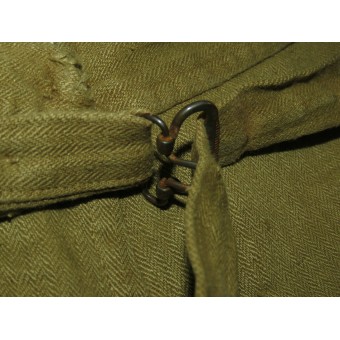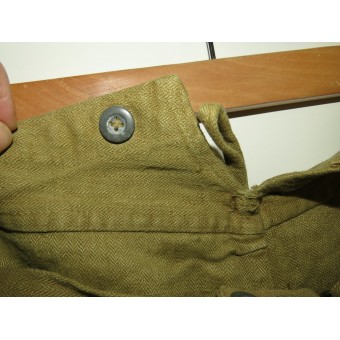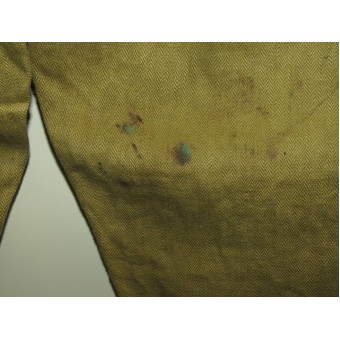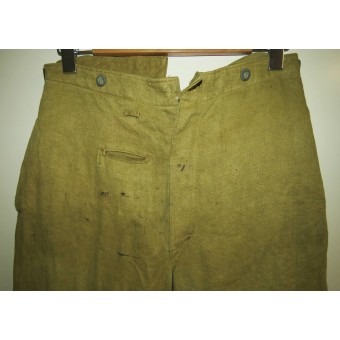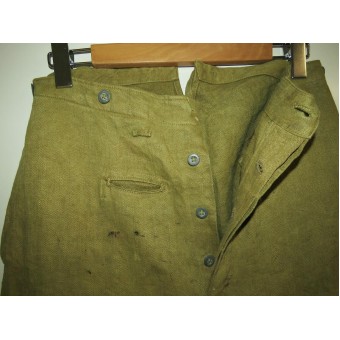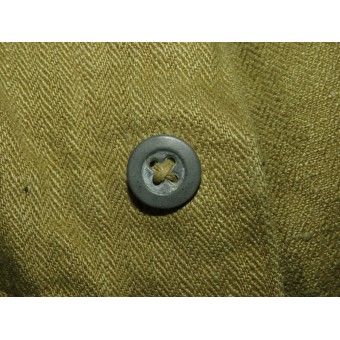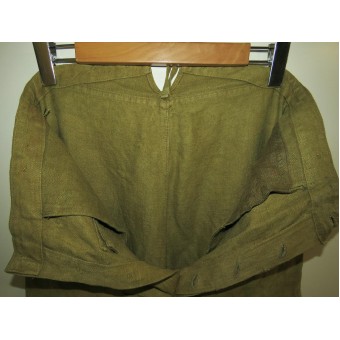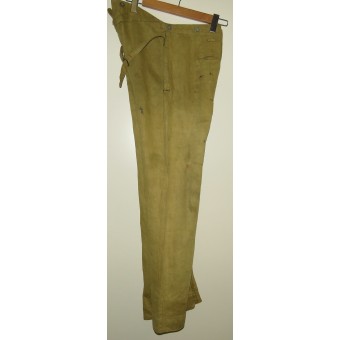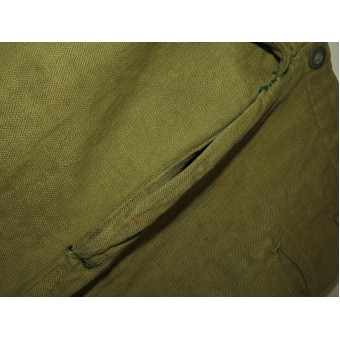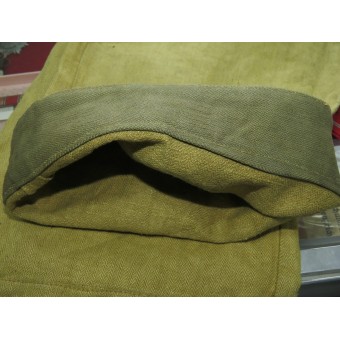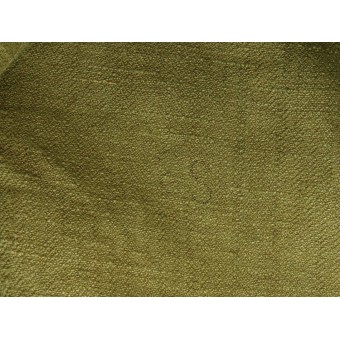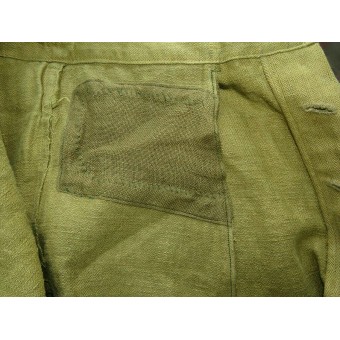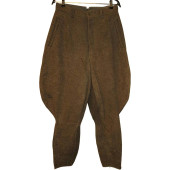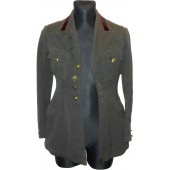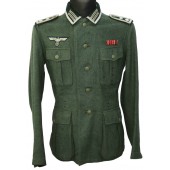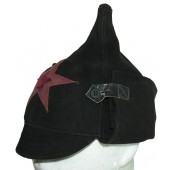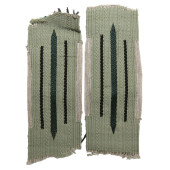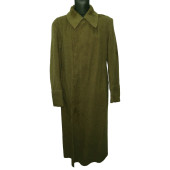Tunic and trousers of the German corps in Indochina, model 1900
Tunic and trousers of the German corps in Indochina, model 1900. Made of herringbone twill material, "Drillich" in khaki color. The back buttons for holding the waist belt, in the traditional style, were most likely added later, these are Prussian style NCO's collar tabs buttons. Traces of fade in place of the waist belt and cross strap, probably due to exhibiting in the museum. An extremely rare collectible item that has survived to this day, is probably one of the last surviving examples. The size of the mannequin is approximately 48-50. It's superbly preserved, without damage from bad storage, in the condition in which it was taken from the soldier's hands 120 years ago. This set was found in the 90's in a theater, as evidenced by the inventory number and stamp: "Костюмерная ВАХ". Most likely, this set was taken out of one of the museums of the Third Reich as a trophy, since a tag with the inscription Arsenal is sewn on the collar, from the Military History Institute in Vienna in 1945 (Militärhistorisches Institut Arsenal), like most other items of uniforms taken out of this museum were transferred to the Central Museum of the Red Army, where subsequently, after the revision, many things were transferred as unnecessary as theatrical props to film studios and theaters.
Tunic and trousers of the German corps in Indochina, model 1900. Made of herringbone twill material, "Drillich" in khaki color. The back buttons for holding the waist belt, in the traditional style, were most likely added later, these are Prussian style NCO's collar tabs buttons. Traces of fade in place of the waist belt and cross strap, probably due to exhibiting in the museum. An extremely rare collectible item that has survived to this day, is probably one of the last surviving examples. The size of the mannequin is approximately 48-50. It's superbly preserved, without damage from bad storage, in the condition in which it was taken from the soldier's hands 120 years ago. This set was found in the 90's in a theater, as evidenced by the inventory number and stamp: "Костюмерная ВАХ". Most likely, this set was taken out of one of the museums of the Third Reich as a trophy, since a tag with the inscription Arsenal is sewn on the collar, from the Military History Institute in Vienna in 1945 (Militärhistorisches Institut Arsenal), like most other items of uniforms taken out of this museum were transferred to the Central Museum of the Red Army, where subsequently, after the revision, many things were transferred as unnecessary as theatrical props to film studios and theaters.


